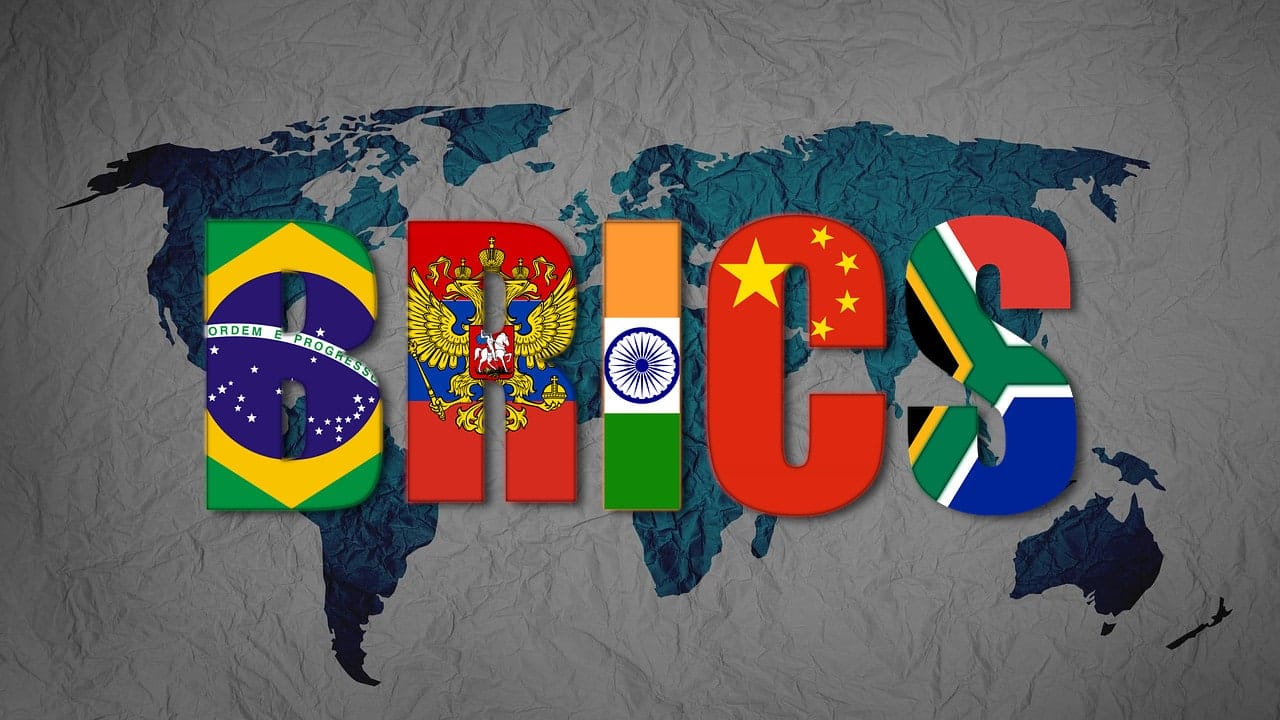BRICS stands for Brazil, Russia, India, China, and South Africa. Together, these countries form a strong economic group. They are different in many ways, but they share a goal of becoming more powerful in the world. To do this, BRICS needs a long-term plan to make the most of their partnership.
Main Areas to Focus On:
- Working Together Economically:
- Trade and Investment: These countries can grow by trading more with each other and investing in shared projects like building roads or factories.
- Money Matters: They could create their own currency or payment system so they don’t have to rely on Western banks.
- Strong Supply Chains: Making sure they have strong, dependable supply chains, so they don’t get disrupted by political problems or crises.
- Technology Growth:
- Innovation Centers: BRICS can create research centers to work together on new technology in areas like artificial intelligence, clean energy, and medicine.
- Better Digital Networks: Investing in faster internet and data centers will help more people get connected and grow their economies.
- Protecting Inventions: By making laws to protect new ideas and inventions, they can encourage more technological growth and sharing.
- Political Cooperation:
- Supporting Fair Rules: BRICS can work together to push for international rules that are fairer for all countries.
- Global Leadership: They can take the lead on important global issues like climate change, security, and sustainable growth.
- Regional Unity: By working more closely in their regions, they can solve shared problems and create more stability.
- People-to-People Connections:
- Cultural Exchange: By encouraging cultural programs, educational ties, and tourism, the countries can understand each other better.
- Youth Programs: Empowering young people with training, entrepreneurship, and leadership programs will ensure a strong future for BRICS.
Challenges and Opportunities:
While BRICS has a lot of potential, it also faces some big challenges. The countries don’t always have the same goals, their economies are different, and political issues can slow them down. However, if they work together and plan smartly, BRICS could become a major force for global progress and provide an alternative to the Western-dominated world order.
In conclusion, for BRICS to reach its full potential, it needs a solid long-term plan. By focusing on economic cooperation, technology development, political alignment, and people-to-people connections, BRICS can help shape the future of the global economy.
BRICS: A Vision for a New Global Order
The BRICS nations—Brazil, Russia, India, China, and South Africa—have emerged as a formidable economic and political force on the world stage. Their collective rise has challenged the traditional geopolitical landscape dominated by Western powers. As these nations continue to grow and develop, it is imperative to explore a long-term strategy for BRICS that can shape a more equitable and sustainable global order.
A Shared Vision for a New Global Order
A core objective for BRICS should be to foster a global order that is more inclusive, equitable, and just. This vision can be achieved through several key initiatives:
- Economic Cooperation: BRICS nations can strengthen their economic ties through trade agreements, joint investments, and infrastructure projects. This will not only boost their domestic economies but also create new opportunities for global growth and development.
- Financial Reform: BRICS can advocate for a more equitable and representative international financial system. This includes reforms to institutions like the International Monetary Fund and the World Bank, as well as the creation of alternative financial mechanisms.
- Technological Innovation: BRICS can collaborate on research and development in key areas such as artificial intelligence, renewable energy, and biotechnology. This will not only drive economic growth but also address global challenges like climate change and poverty.
- Political Coordination: BRICS nations can work together to promote multilateralism and address global challenges like climate change, terrorism, and pandemics. This will help to strengthen international cooperation and stability.
- Cultural Exchange: BRICS can foster cultural exchange and understanding among their populations. This will help to build bridges between different cultures and promote tolerance and respect.
Overcoming Challenges and Building Trust
While BRICS presents immense potential, it also faces significant challenges. These include:
- Divergent Interests: The five nations have diverse economic, political, and cultural interests. This can make it difficult to reach consensus on key issues.
- Geopolitical Tensions: Some BRICS nations have competing interests in certain regions, which can lead to tensions and conflicts.
- Internal Challenges: Each BRICS nation faces its own domestic challenges, such as economic inequality, social unrest, and political corruption.
To overcome these challenges and build trust among the BRICS nations, it is essential to:
- Prioritize Dialogue and Cooperation: BRICS leaders should engage in regular dialogue and cooperation to address their differences and find common ground.
- Foster Mutual Respect and Understanding: BRICS nations should promote cultural exchange and understanding to build trust and respect among their populations.
- Strengthen Institutional Mechanisms: BRICS can establish or strengthen institutional mechanisms, such as the New Development Bank and the BRICS Business Council, to facilitate cooperation and coordination.
The Role of BRICS in a Changing Global Landscape
BRICS nations are well-positioned to play a leading role in shaping the future of the global order. As emerging economies, they represent the interests of billions of people who have been marginalized in the past. By working together, BRICS can promote a more equitable and sustainable world.
In conclusion, a long-term strategy for BRICS is essential to realize its full potential. By fostering economic cooperation, financial reform, technological innovation, political coordination, and cultural exchange, BRICS can help to build a more just and prosperous global order.

